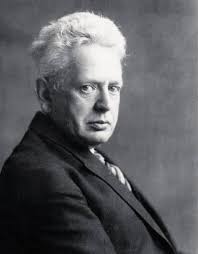Cassirer, Ernst

Bio: (1874-1945) German philosopher and sociologist. Ernst Cassirer is one of the main advocates of the Marburg school of neo-Kantianism. He taught at several universities in Germany, and after fleeing Nazi Germany in 1933, he continued his career in Britain and the United States. Although he is a follower of Kant, unlike him, Cassirer believes that reality is revealed to the observer only through symbols. For Cassirer, the symbol is the main term used in his philosophy of culture. Symbols mediate between sensory experience and meaning and allow for their instantaneous connection. All expressions of culture, language, myths, art, religion, and even science are mediated by symbols and structurally separated by layers of meaning. Symbolic forms, on the one hand, form the entire culture, while, on the other hand, they shape the individual perception of reality. This omnipresence of symbols is the reason why it is better to call a man an "animal symbolicum" instead of an "animal rationale". In the book The Myth of the State (1946), Cassirer studies the intellectual roots of the totalitarian state in Germany and concludes that in Nazi Germany, irrationality and mythical thinking about the nation and the state acted completely unfettered.
Fields of research
Art Culture Dictatorship History Language Myth Personality Science Sign and Symbol State FascismTheoretical approaches
Neo-KantianismMain works
Das Erkenntnisproblem in der Philosophie und Wissenschaft der neueren Zeit (1906–1920);
Substanzbegriff und Funktionsbegriff (1910);
Freiheit und Form (1916);
Philosophie der symbolischen Formen, 4 vols. (1923-1929);
Sprache und Mythos: Ein Beitrag zum Problem der Götternamen (1925);
Individuum und Kosmos in der Philosophie der Renaissance (1927);
Die Idee der republikanischen Verfassung (1929);
Die Philosophie der Aufklärung (1932);
Zur Logik der Kulturwissenschaften (1942);
An Essay on Man (1944);
The Myth of the State (1946).
Works translated into English:
Substance and Function (1923, in German 1910);
Language and Myth (1946, in German 1925);
The Problem of Knowledge: Philosophy, Science, and History since Hegel (1950, in German 1906-1920);
Philosophy of the Enlightenment (1951, in German 1932);
The Individual and the Cosmos in Renaissance Philosophy (1963, in German 1927);
The Logic of the Cultural Sciences: Five Studies (2000, in German 1942);
The Philosophy of Symbolic Forms, 3 vol. (2020, in German 1923-1929).

